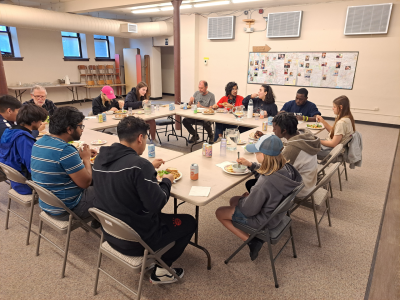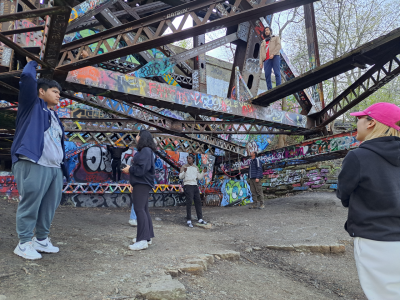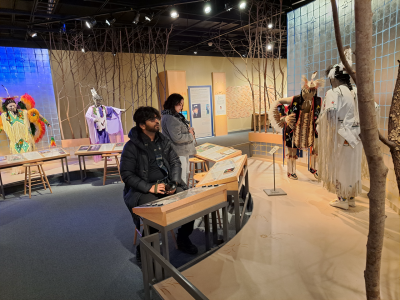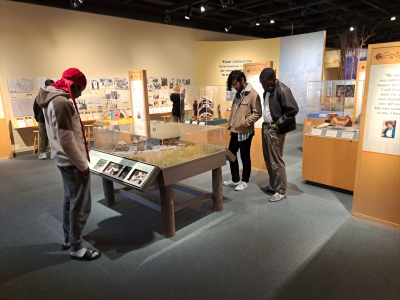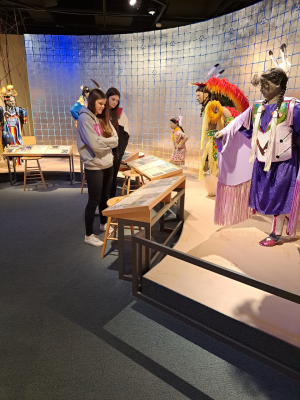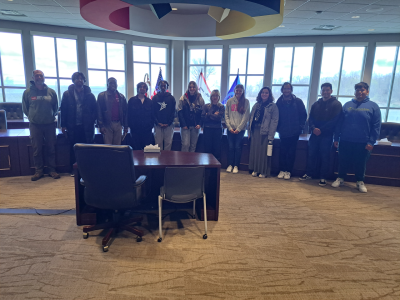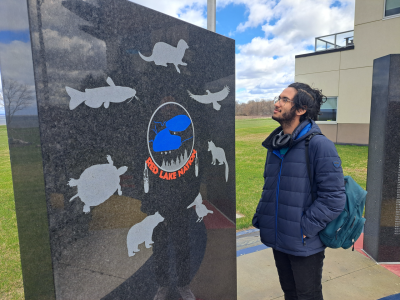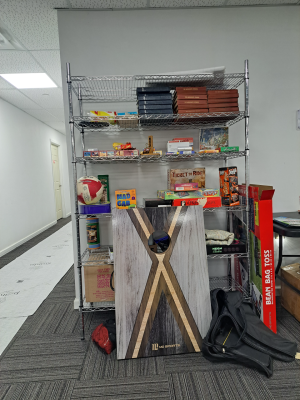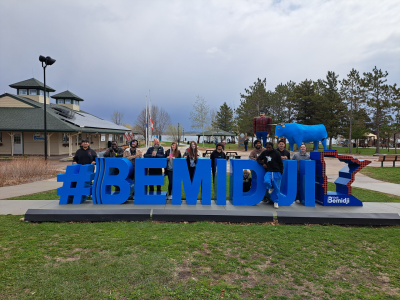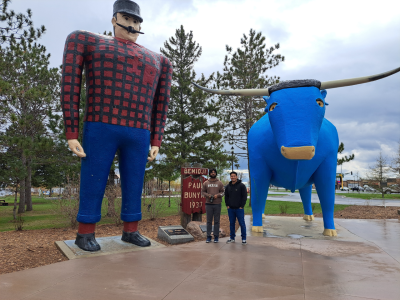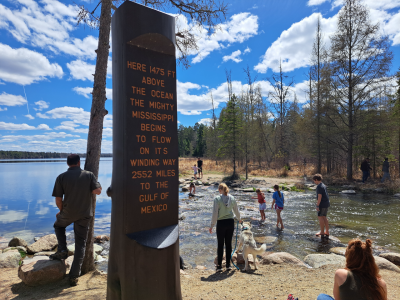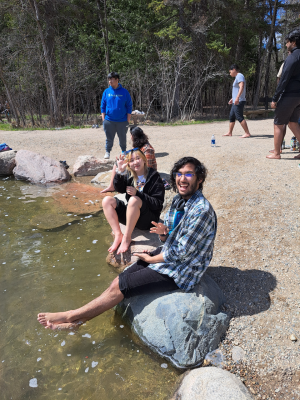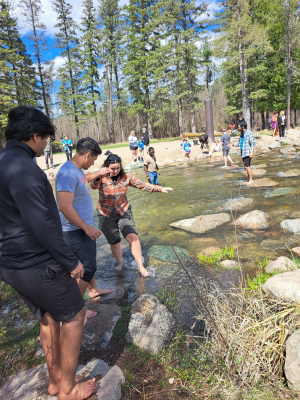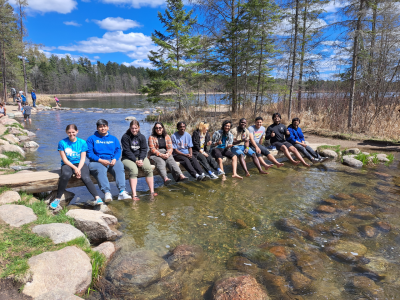On the first of May we loaded up and headed north, bound for Red Lake, Minnesota, home of the Red Lake Band of Chippewa Indians. We went to volunteer with Mennonite Disaster Service (MDS), and to learn and build relationships with the citizens of Red Lake Nation, the only Indigenous tribe in the U.S. that has managed—despite intense pressure and legal trickery from the federal government—to maintain collective ownership of their ancestral land.
For ten hours or so we lumbered up the highway in a minivan and giant GC bus, until we reached Minneapolis, where we were treated to a hot meal and an informative chat with MDS Minnesota chair Glenn Geissinger at Faith Mennonite Church. Glenn fed us lasagna and oriented us to some of what we would encounter at Red Lake, and then sent us out for an evening stroll along the Mississippi River Walk. By the time the sun went down we were back on the bus and making our way to a little hotel, just off the highway that tomorrow would take us to Red Lake.
In the morning we drove up to the Mille Lacs Indian Museum and got a fascinating introduction to the history and cultures of the Ojibwe nations of Minnesota. Then we lunched in a casino and traveled the rest of the way to Red Lake.
We rolled up to the MDS volunteer center Thursday late afternoon, in time for the first of many delicious meals prepared by the firebrand volunteer chef duo Dottie and Tim. The Project Director, Don, told us about the job we’d begin on Monday—replacing siding and windows on homes damaged by a tornado in 2021—and the students settled into their bunk rooms and swooned over the giant rack of board games.
Friday we met the Council Chairman—the head of the sovereign nation’s democratically elected government—in the Nation’ council chambers. He spoke about the treaties by which his ancestors were coerced into signing away millions of acres of land, and the remarkable Red Lake leaders who successfully retained the sacred territories around Upper and Lower Red Lake by resisting the late-nineteenth century allotment policy which effectively robbed every other Indigenous nation in the U.S. of communal ownership of reservation lands. He answered our long string of questions about the past and present of Red Lake with humor, clarity, and grace.
We spent our first weekend in the Northwoods exploring Bemidji and the Mississippi Headwaters, enjoying the giant shelf of board games, playing volleyball and soccer at a nearby school, watching the sun go down over the clear, sacred waters of Red Lake, and getting ready for 6:30am Monday, when our work as full-time MDS volunteers would begin.





